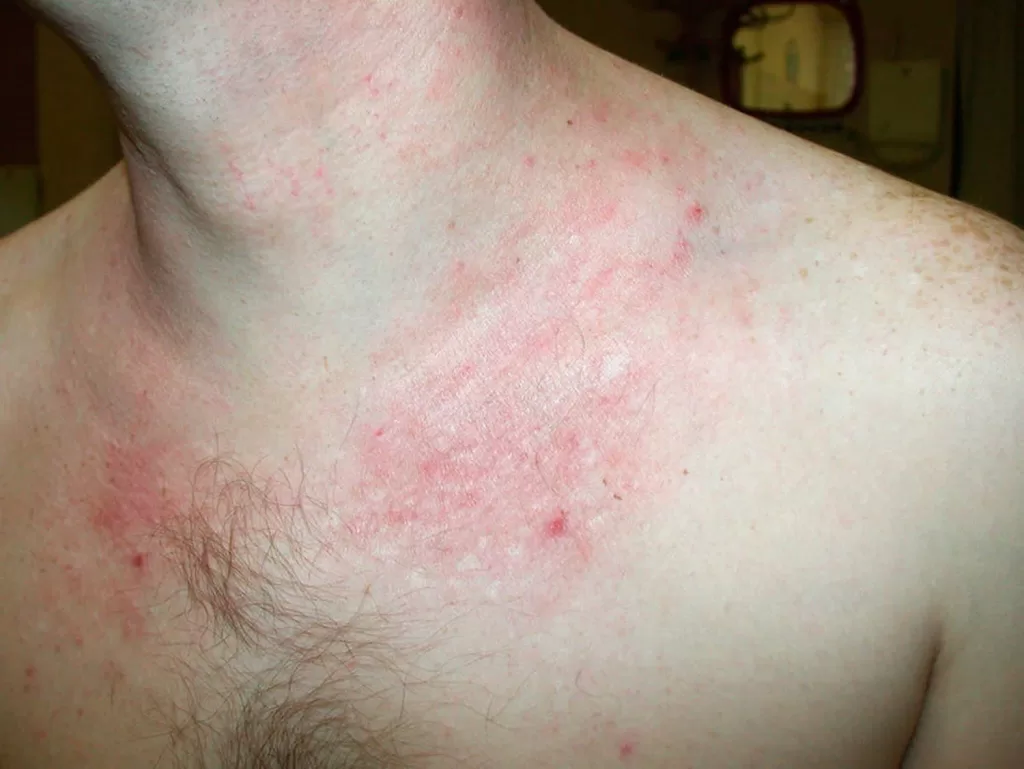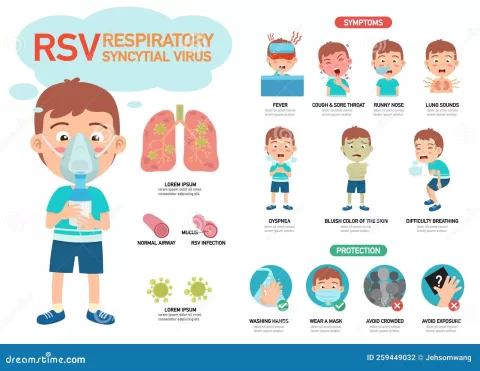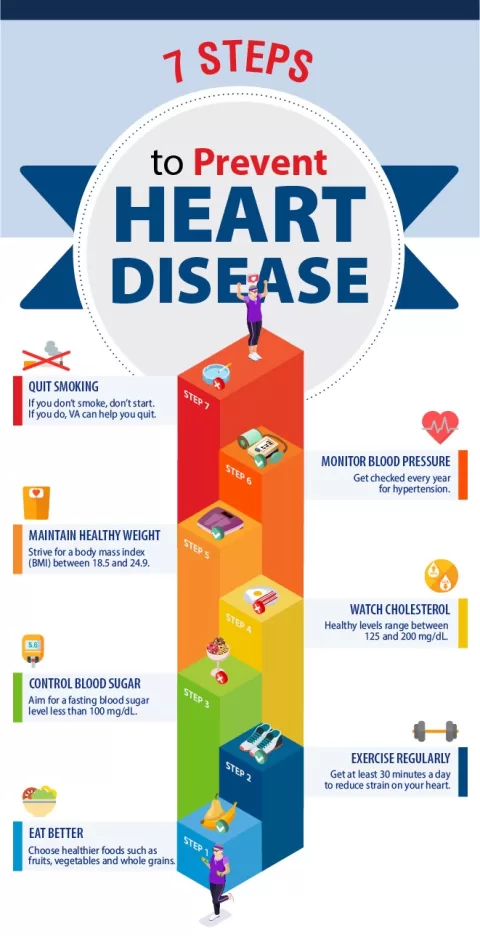Atopic eczema, also known as atopic dermatitis, is a prevalent skin condition that affects millions of individuals, particularly children, worldwide. Characterized by dry, inflamed skin and relentless itching, atopic eczema can significantly impact the quality of life for those affected. Understanding the causes of eczema is crucial for effective eczema management, as factors like allergens, irritants, and environmental stressors often trigger flare-ups. Fortunately, advancements in eczema treatments are providing new hope for relief, enabling patients to navigate their daily challenges more effectively. In this blog post, we will explore the latest developments in atopic eczema treatments, as well as practical strategies for managing symptoms and improving overall skin health.
Atopic eczema, commonly referred to as atopic dermatitis, is part of the broader category of eczema, which encompasses various types of skin inflammation. This chronic condition primarily affects the skin’s barrier function, leading to increased sensitivity and vulnerability to irritants and allergens. Individuals suffering from eczema often experience flare-ups that can be triggered by numerous factors, including environmental conditions, stress, and specific allergens. Understanding the nuances of atopic dermatitis is essential for effective treatment and management strategies. In this article, we will discuss the underlying causes of eczema, the latest treatment options available, and how to effectively manage this challenging skin condition.
Understanding the Complexities of Atopic Eczema
Atopic eczema, or atopic dermatitis, is not merely a skin condition but a complex interplay of genetics, environmental factors, and the immune system. Individuals with atopic eczema often exhibit heightened sensitivity to irritants and allergens, leading to a compromised skin barrier that can result in dry, inflamed skin. This makes managing atopic eczema particularly challenging, as the condition can exacerbate with routine exposures to everyday items such as soaps, detergents, and even certain fabrics. Understanding these complexities helps patients and caregivers create more effective management strategies.
Recent research has shed light on the role of the microbiome in atopic eczema. Studies suggest that an imbalance in skin bacteria might contribute to the development and persistence of eczema symptoms. By nurturing skin health through probiotics and maintaining a balanced skin environment, individuals may be able to improve their skin condition over time. As we continue to learn more about atopic eczema, it becomes increasingly important to consider both internal and external factors that play a role in this chronic condition.
Exploring the Causes of Atopic Eczema
The etiology of atopic eczema is multifaceted, encompassing genetic predispositions alongside various external triggers. Genetics plays a significant role, with many individuals experiencing eczema in families, suggesting hereditary links. However, environmental factors, including allergens like pollen, pet dander, and dust mites, can provoke flare-ups. Understanding these causes is crucial for both prevention and management, as avoiding known triggers can significantly reduce the frequency and severity of eczema outbreaks.
In addition to allergens, irritants such as harsh soaps, detergents, and certain fabrics can worsen atopic eczema symptoms. Even changes in climate—whether hot and humid or cold and dry—can impact the skin’s condition. Stress is another significant factor, often exacerbating symptoms and creating a cycle of discomfort. By identifying and managing these causes, individuals with atopic eczema can work towards reducing their symptoms and improving their overall quality of life.
Innovative Eczema Treatments on the Horizon
The landscape of eczema treatments is evolving rapidly, with several new therapies showing promise for individuals suffering from atopic eczema. Among these treatments, Abrocitinib has emerged as a significant advancement, providing relief for moderate to severe cases by targeting the Janus kinase pathway. This oral medication not only reduces inflammation but also alleviates the intense itching associated with eczema flare-ups, marking a shift towards more effective and targeted treatment options.
Another noteworthy development is Rezpegaldesleukin, which has received fast-track designation from the FDA for treating patients aged 12 and older. This treatment aims to provide relief for those who have not responded to traditional topical therapies, highlighting the importance of personalized treatment plans. As research continues to uncover new therapies, patients can look forward to a future with more effective management options for their atopic eczema.
Best Practices for Eczema Management
Managing atopic eczema requires a comprehensive approach that combines medication with diligent skincare routines. One of the most effective practices is to maintain skin hydration through regular use of thick creams or ointments, particularly after bathing. This helps to restore the skin barrier, locking in moisture and reducing dryness. Additionally, individuals should identify and steer clear of known triggers to minimize the likelihood of flare-ups, which can be tracked through a symptom diary.
Choosing gentle, fragrance-free skincare products is also essential. Many traditional soaps and lotions contain harsh chemicals that can irritate sensitive skin, leading to increased discomfort. Instead, opting for products designed specifically for eczema can significantly improve skin health. Furthermore, employing cool compresses during flare-ups can provide immediate relief from itching and inflammation, illustrating the importance of a proactive management strategy.
Special Considerations for Atopic Eczema in Babies
Atopic eczema frequently presents in infants, and early intervention is critical for effective management. In babies, eczema often appears as red, itchy patches, primarily on the cheeks and scalp. These symptoms can be distressing for both the child and the caregiver, making it imperative to establish a gentle skincare routine that includes regular moisturizing and the use of hypoallergenic products. Consulting a pediatric dermatologist can provide tailored advice to help manage symptoms and prevent worsening of the condition.
In addition to skincare, understanding the potential triggers in a baby’s environment is vital. Common irritants such as certain fabrics, soaps, and even dietary factors can contribute to flare-ups. Parents should monitor their child’s condition closely and consider introducing dietary changes or allergen avoidance strategies as recommended by healthcare professionals. By staying informed and proactive, caregivers can significantly improve the quality of life for infants suffering from atopic eczema.
Frequently Asked Questions
What are the main causes of atopic eczema?
Atopic eczema, also known as atopic dermatitis, is primarily caused by a combination of genetic and environmental factors. Common triggers include allergens like pollen and dust mites, irritants such as harsh soaps and detergents, climate changes, and emotional stress. Understanding these eczema causes is essential for effective management.
What are the latest treatments available for atopic eczema?
Recent advancements in eczema treatments include medications like Abrocitinib, which reduces inflammation by inhibiting Janus kinase (JAK), and Rezpegaldesleukin, which targets moderate to severe atopic dermatitis. Another promising option is Zabalafin Hydrogel for mild to moderate cases. These new treatments offer hope for better eczema management.
How can I manage atopic eczema effectively?
Effective eczema management involves a comprehensive skincare routine. Key strategies include daily moisturizing, identifying and avoiding triggers, using gentle, fragrance-free products, applying cool compresses during flare-ups, and consulting with a dermatologist for personalized treatment plans.
Is atopic eczema common in babies, and how should it be treated?
Yes, atopic eczema often appears in babies, typically manifesting as itchy, moist patches on the cheeks and scalp. Early intervention is crucial. Treatment includes keeping the skin moisturized, avoiding known irritants, and using gentle skincare products. Consulting with a pediatric dermatologist is recommended for tailored advice.
What lifestyle changes can help reduce atopic eczema flare-ups?
Lifestyle changes to reduce atopic eczema flare-ups include maintaining a consistent moisturizing routine, avoiding known allergens and irritants, wearing breathable clothing, managing stress effectively, and keeping the living environment clean and free of dust. These changes can significantly improve eczema management.
| Aspect | Details |
|---|---|
| Definition | Atopic eczema, or atopic dermatitis, is a chronic skin condition characterized by inflammation, dryness, and intense itching. |
| Causes | Combination of genetic and environmental factors, including allergens, irritants, climate, and stress. |
| Latest Treatments | 1. Abrocitinib: Oral medication targeting Janus kinase to reduce inflammation. 2. Rezpegaldesleukin: Fast-tracked FDA designation for moderate to severe cases. 3. Zabalafin Hydrogel: FDA cleared for mild to moderate eczema. |
| Management Strategies | 1. Maintain skin hydration with creams. 2. Identify and avoid triggers. 3. Use gentle, fragrance-free products. 4. Apply cool compresses during flare-ups. 5. Consult healthcare professionals. |
| Specific Considerations | Atopic eczema can manifest in babies and may require specific management strategies during pregnancy. |
Summary
Atopic eczema is a complex chronic skin condition that affects many individuals, particularly children. Understanding its causes, including genetic predispositions and environmental triggers, is crucial for effective management. The latest advancements in treatments such as Abrocitinib, Rezpegaldesleukin, and Zabalafin Hydrogel provide new hope for those suffering from this condition. Furthermore, implementing best practices for skincare and identifying specific triggers can help manage symptoms effectively. As research continues to evolve, individuals with atopic eczema can look forward to improving their quality of life with the right strategies and treatments.
The content provided on this blog (e.g., symptom descriptions, health tips, or general advice) is for informational purposes only and is not a substitute for professional medical advice, diagnosis, or treatment. Always seek the guidance of your physician or other qualified healthcare provider with any questions you may have regarding a medical condition. Never disregard professional medical advice or delay seeking it because of something you have read on this website. If you believe you may have a medical emergency, call your doctor or emergency services immediately. Reliance on any information provided by this blog is solely at your own risk.








